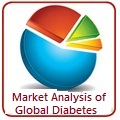
Anna Kokavec
University of New England, Australia
Title: Effect of wine on postprandial serum insulin, plasma glucose, serum IgA and insulin sensitivity as all wines are not the same
Biography
Biography: Anna Kokavec
Abstract
Statement of the Problem: The effect of wine on glucose metabolism and utilization in non-diabetic individuals is largely unknown and requires investigation. The purpose of this study is to compare the effect of red and white wine on postprandial glucose metabolism and utilization in non-diabetic individuals.
Methodology & Theoretical Orientation: This study utilized a 3x4 mixed design. The ‘between subjects’ factor was trial (white wine, red wine, placebo) and the ‘within subjects’ factor was time (Food, 45-min, 90-min, 135-min). The experimental procedure required 24 non-diabetic males to consume food for 45-min and then ingest 4x standard units (40 g of alcohol) of white wine (n=8), red wine (n=8) or the equivalent amount of placebo (n=8) over a period of 135 minutes. Measures of serum insulin, plasma glucose and serum immunoglobulin A (IgA) were taken upon arrival (Baseline), after the meal (0 minutes) and during beverage consumption (45 minutes, 90 minutes and 135 minutes).
Findings: Significant trial differences were observed when data was compared. The level of postprandial: Plasma glucose was significantly reduced with red wine at 45 minutes (<13 g of alcohol); serum insulin was significantly reduced with white wine at 45 minutes (<13 g of alcohol); serum IgA became significantly elevated with white wine at 45 minutes (<13 g of alcohol). Moreover, a significant improvement in insulin sensitivity was only noted with white wine at 90 minutes (<30 g of alcohol).
Conclusion & Significance: Both red wine and white wine can alter postprandial glucose metabolism and utilization in non-diabetic individuals. However, the effect of red wine and white wine is not the same: white wine after a meal improves improve insulin sensitivity and promotes the development of a transient pseudo-diabetic condition; red wine after a meal alters the glucose-insulin feedback mechanism, reduces insulin sensitivity and promotes the development of a transient pseudohypoglycemic condition. Thus, consuming wine alone after a meal should not be encouraged in non-diabetics.

